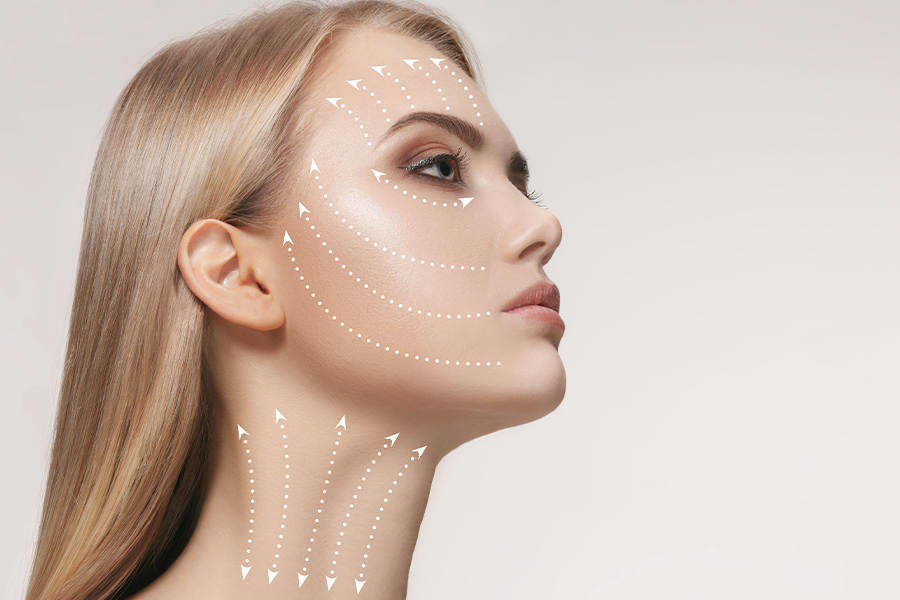Facelift is a surgical method to give your face a younger look. After the face lift surgery, sagging or wrinkles on the cheeks and chin can be reduced. In face lift surgery, the skin on both sides of the face is pulled and stretched and excess skin is removed. In addition, the tissues under the skin are also processed to give your face a more beautiful appearance.
A facelift not only gives your skin a younger look, but also reduces your wrinkles. Although it does not reduce very fine wrinkles and sunspots on your skin, it visibly rejuvenates your skin.

Facelift is a treatment method in which excess skin is removed to make the face look younger and more beautiful. In addition, as people age, their skin loses its elasticity. However, facial fat and muscle tissues also change as we age. These changes on our face cause sagging and wrinkles. In order to achieve the best results with this treatment, methods such as neck lift, eyelid aesthetics, forehead lift and chin implant can also be applied.
A traditional facelift surgery is performed with an incision starting from the hairline above and in front of the ear. The incision is extended downwards in front of the ear, comes from under the ear and ends up behind the ear at the hairline behind the ear.
Skin, fat, muscle and connective tissues are lifted as needed to reduce sagging and wrinkled skin issues. If the surgeon performing the procedure deems it necessary, the underlying muscle and connective tissues can be tightened with sutures. The skin is pulled backwards and upwards and the excess skin is removed. Then the wound areas are closed with stitches and staples.
Excess blood may need to be removed after surgery. After the surgery, your face is bandaged. The healing process begins.
Recovery Process After Surgery
After facelift surgery, your doctor may prescribe pain medication. It is common and expected to experience some pain or discomfort along with swelling and bruising during the treatment process. Your doctor will let you know when to remove the dressings. In addition, during this entire healing process, you should regularly meet with your doctor and have the necessary check-ups.
When the swelling decreases after the facelift procedure, you can see the change and difference in your face. It may take several months for your skin to return to its normal appearance and for the swelling to completely heal.
You should rest for about 2 weeks before continuing your normal daily life. It would be good to rest for about 4 weeks to do more strenuous work such as sports. Since the healing process can develop differently for everyone, you can get the most accurate information from your doctor.
It would be good to pay attention to the following in order to preserve your beauty and to have permanent effects after facelift surgery.
- You should moisturize your face daily.
- You should not go out into direct sunlight.
- You should pay attention to your sleep pattern.
- You should have a balanced diet.
- You should drink plenty of water.
